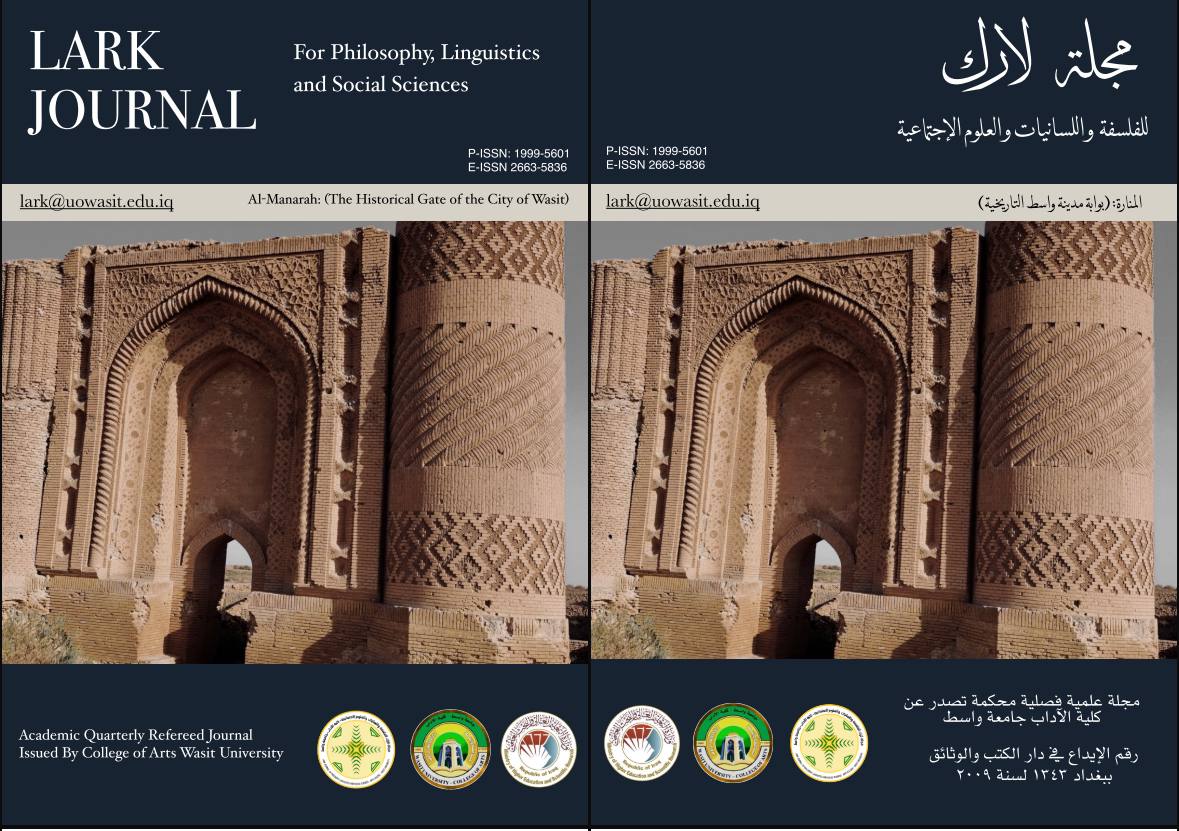Abstract
Whoever reads the novel Al-Sabīliyāt by the novelist Ismail Fahd Ismail In the light of literary criticism might initially think that the novel supports women and contributes to producing a positive image of them contrary to the negative portrayal in patriarchal culture by assigning them the role of reviving the village of Al-Sabīliyāt in southern Iraq after it was destroyed by the Iran-Iraq war. Yet, a rereading of the novel in light of cultural criticism reveals cultural patterns that subtly slipped beneath its surface conveying implicit meanings that reinforce the pattern of deficiency, dependence, helplessness and misguidance through Umm Qasim’s insistence on imitating men as she is portrayed as lacking intellect and being the weaker and inferior creature trying to catch up with the stronger one.
Everything Umm Qasim did was not from her own will or planning or thought. Rather, she followed the instructions and guidance of her husband Abu Qasim who became the absent present figure in her life through his repeated visits in her dreams eventually solidifying Umm Qasim’s character as a model of femininity in patriarchal culture which views women as perpetually waiting for men to tell them what to do and to give their lives meaning.
Everything Umm Qasim did was not from her own will or planning or thought. Rather, she followed the instructions and guidance of her husband Abu Qasim who became the absent present figure in her life through his repeated visits in her dreams eventually solidifying Umm Qasim’s character as a model of femininity in patriarchal culture which views women as perpetually waiting for men to tell them what to do and to give their lives meaning.
Keywords
cultural criticism
Implicit meaning
Keywords : Pattern
Masculine Culture
Sabiliyat
the novel
Abstract
من يقرأ رواية السبيليات للروائي إسماعيل فهد إسماعيل في ضوء النقد الأدبي يظن في الوهلة الأولى أن الرواية انتصرت للمرأة ، وانخرطت في انتاج صورة إيجابية لها بالضد لما كانت عليه من سلبية في الثقافة الذكورية ، حين أسندت لها دور إعادة الحياة إلى قرية السبيليات في جنوب العراق بعد أن خربتها الحرب العراقية الإيرانية ، ولكن إعادة قراءة الرواية في ضوء النقد الثقافي تكشف الأنساق الثقافية التي تسللت من تحت عباءاتها الدلالات النسقية المضمرة التي عملت على تكريس نسق النقص ، والتبعية والعجز ، والضلالة من خلال حرص أم قاسم على تقليد الرجل بوصفها " ناقصة عقل " والمخلوق " الأضعف " و "الأدنى " الذي يحاول اللحاق بالمخلوق الأقوى ؛ لأن كل ما قامت به أم قاسم لم يكن من أعمالها ، ولا من تدبيرها ، ولا من تفكيرها ، وإنما كان من توجيهات زوجها المتوفي بو قاسم وإرشاداته وتعليماته التي صيرته الغائب الحاضر في حياتها بفعل زياراته المستمرة لها في مناماتها ، لترسخ شخصية أم قاسم في النهاية نموذج الأنثى في الثقافة الذكورية التي ترى بأن المرأة تبقى بانتظار الرجل ؛ ليقول لها ما يجب أن تفعله ، ويجعل لحياتها معنى .
Keywords
الانساق الثقافية، رواية السليبيلت، اسماعيل فهد، النقد الثقافي
